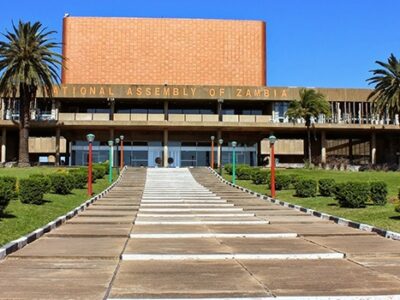Despite concerns from some stakeholders about the government’s new cybersecurity measures, Zambia is making steady progress in securing its cyberspace.
The country has enacted several laws aimed at creating a safe, secure and effective environment for electronic communications.
These include the Electronic Communications and Transactions Act No. 4 of 2021, the Data Protection Act No. 3 of 2021, the Cyber Security and Cyber Crimes Act No. 2 of 2021 and the Information and Communications Technologies Act No. 15 of 2009, among others.
Sydney Chisanga and Francis Muzimu from Corpus Legal Practitioners, in their recent “Zambia – Data Protection Overview” article, described the legislation as comprehensive, providing legal requirements for the communication of data messages.
They noted that these laws covered various aspects of data privacy and protection, such as the processing of personal information, recognition of authentication service providers, protection of critical databases and regulation of domain names.
Read more:Zambia’s quest for digital literacy: Challenges and prospects, by Hannet Mwimbe
“The legislation further has provisions that prohibit the interception of communications, the disclosure of stored communications, the unauthorized decryption of communications or release of a decryption key, and the disclosure of records or other information by the key holder,” Chisanga and Muzimu stated.
However, the government remained concerned about the rising threat of cyber-attacks, particularly in sectors like financial institutions, which have increasingly become targets.
Technology and Science Permanent Secretary, Brilliant Habeenzu, emphasized the urgency of creating a conducive policy and legal environment to maintain Zambia’s cyber resilience.
Describing the digital era as one marked by both unprecedented opportunities and challenges, Habeenzu remarked, “The advancements in technology have brought us closer, but they have also exposed us to increased threats and vulnerabilities in cyberspace.”
He noted that the demand for skilled cybersecurity professionals in Zambia, like in many other countries, is rapidly outpacing the available talent pool.
“To safeguard digital assets, protect critical infrastructure, and ensure the privacy and safety of citizens, the government is calling for collective efforts to proactively nurture a capable cybersecurity workforce,” he said.
To address these challenges, the government is undertaking a review of the Cyber Security and Cyber Crimes Act No. 2 of 2021.
This review, now at an advanced stage, aims to strengthen protocols for cyber resilience, protect critical information, and secure critical infrastructure.
The revised act is expected to provide a more robust legal framework to process and protect personal data while maintaining compliance with mandatory standards such as payment card industry data security.
The Ministry of Technology and Science stressed the importance of regulation enforcement to sustain a secure digital environment and foster a culture of cybersecurity within communities.
However, it also warned that excessive regulation could limit freedoms and rights, potentially making the government unpopular, as occurred under the previous administration’s handling of the Cyber Security and Cyber Crimes Act.
Ultimately, while Zambia has made significant strides in enhancing its cybersecurity framework, the government acknowledges that it must balance regulation with the protection of civil liberties to maintain public trust.
WARNING! All rights reserved. This material, and other digital content on this website, may not be reproduced, published, broadcast, rewritten or redistributed in whole or in part without prior express permission from ZAMBIA MONITOR.












Comments